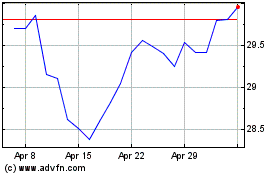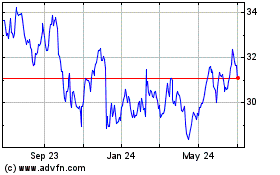By Saabira Chaudhuri and Denise Roland
The race to find a vaccine for the novel coronavirus has an
unlikely new entrant: tobacco companies.
Lucky Strike owner British American Tobacco PLC is developing a
potential vaccine grown in tobacco plants, while Medicago Inc., a
biotech firm partly owned by Marlboro maker Philip Morris
International Inc., is pursuing a similar effort.
The initiatives join dozens already under way at drug companies,
universities and other research institutions across the globe
seeking a vaccine or treatment for Covid-19, the sometimes fatal
disease caused by the new coronavirus.
BAT this week said its Kentucky BioProcessing subsidiary had
identified an antigen -- a protein it hopes will stimulate an
immune response to the virus -- and was reproducing it in tobacco
plants. If early tests are successful, human trials could start by
June, it said. The unit previously manufactured a drug for Ebola,
which was only moderately successful, using a similar method.
"I appreciate that we aren't a conventional vaccine player,"
said David O'Reilly, BAT's head of scientific research. "I'd ask
people to try to look beyond that and look at our technology at
face value."
BAT and Medicago are playing in an increasingly crowded field.
Johnson & Johnson on Monday said it had made progress on a
vaccine that could be ready in early 2021. Moderna Inc. has begun
human trials for a vaccine using a novel approach that relies on
the virus's messenger RNA, a type of genetic material. Sanofi SA of
France has begun work on a similar approach.
While there is no indication that BAT's effort has a greater
chance of working than others, using tobacco plants to cultivate a
vaccine could be cheaper and faster to scale up than traditional
methods, which often use chicken eggs or other animal cells.
Tobacco is well-researched, cheap to grow and can yield large
amounts of vaccine quickly. Tobacco-based vaccines also don't need
refrigeration, simplifying the supply chain. Scientists say these
factors could reduce production time to weeks instead of months and
make vaccines as much as 40% cheaper to produce than using animal
cells.
The speed and scale at which a vaccine or treatment can be
brought to market has become increasingly important as the virus
spreads, claiming thousands more lives every day.
The success of BAT's approach -- like all vaccine research
efforts -- will depend on whether its product elicits the
appropriate immune response to protect against future infection
with the new coronavirus, said Beate Kampmann, director of the
London School of Hygiene and Tropical Medicine's Vaccine Centre.
"What's promising is the scalability, " she said.
Plant-based vaccines are generally made by infecting a plant --
sometimes by dipping leaves in a liquid -- with a bacteria that
contains the genetic sequence of the desired protein. The bacteria
hijacks the plant cells to make large quantities of the protein in
the space of about a week, which is then harvested from the plant
and purified into a raw material for the vaccine.
Advocates say plant-based vaccines can more quickly adapt to
mutations in viruses and lack pathogens harmful to humans that
might be present in animal methods.
However, while tobacco-based vaccines have previously been
developed for avian flu and Norwalk norovirus -- also known as
cruise-ship virus -- none are commercially available.
That is partly because much of this work is conducted by small
laboratories that struggle to attract the industry funding needed
for large clinical trials and large-scale manufacture, said Ed
Rybicki, director of the Biopharming Research Unit at the
University of Cape Town in South Africa.
"Academia is trying these things on a small scale," said Dr.
Rybicki. "We have to get industry to join us." He has received
funding from Medicago Inc., a company part-owned by Philip
Morris.
Before coronavirus hit, BAT was working on a tobacco-based
influenza vaccine, which is due to be tested on humans next
month.
BAT said tests to check if its vaccine stimulates the production
of antibodies against Covid-19 will take around four weeks. It then
plans to test the vaccine in animals deliberately exposed to the
virus but needs to find a partner first. BAT is using fast-growing,
Australian dwarf tobacco plants that aren't used in its cigarettes,
and says it isn't looking to turn a profit from its potential
coronavirus vaccine.
When the vaccine will be available partly depends on whether
regulators agree to accelerate clinical studies or grant emergency
authorization, the company said. It is also seeking partners to
help fund large-scale clinical trials and expand manufacturing
capacity.
BAT plans to pre-emptively ramp up production at its site in
Kentucky and thinks it could make between one million and three
million doses a week by June. It is also exploring production in
the U.K.
Medicago, which is one-third owned by Philip Morris, is using a
virus-like particle grown in a close relative of the tobacco plant.
It is aiming to begin human tests this summer and estimates it
would take 12 to 18 months to release the vaccine, although this
could be sooner if regulators accelerate the approval process, said
Chief Executive Bruce Clark. Virus-like particles mimic viruses,
enabling the body's immune system to recognize them and create an
immune response, while lacking the core genetic material that makes
them harmful and infectious.
The Quebec City-based company has already submitted a
plant-based flu vaccine for approval from Health Canada, which Mr.
Clark hopes could make the process easier for its coronavirus
offering. The Government of Quebec is providing $7 million toward
the coronavirus vaccine, which Mr. Clark says will be priced to be
widely accessible.
The lower prices for tobacco-based vaccines could be crucial for
low- and middle-income countries, said Julian Ma, director of the
Institute for Infection and Immunity at St. George's Hospital
Medical School in London. "This is important for a disease which is
spreading to every country in the world," he said.
Write to Saabira Chaudhuri at saabira.chaudhuri@wsj.com and
Denise Roland at Denise.Roland@wsj.com
(END) Dow Jones Newswires
April 04, 2020 11:14 ET (15:14 GMT)
Copyright (c) 2020 Dow Jones & Company, Inc.
British American Tobacco (NYSE:BTI)
Historical Stock Chart
From Mar 2024 to Apr 2024

British American Tobacco (NYSE:BTI)
Historical Stock Chart
From Apr 2023 to Apr 2024
